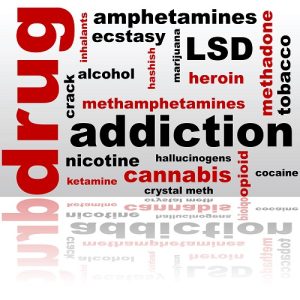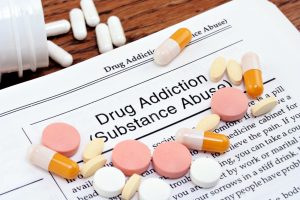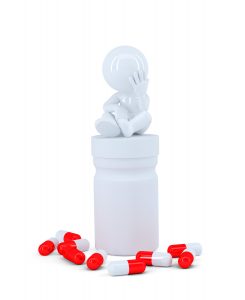Addiction always begins with simple curiosity and eventually develops into habitual or biological and neurological dependence. A simple taste, smoke, snort, drink, or injection can lead to a life long battle with addiction. Peer pressure and escapism from issues can all open the door into these unhealthy habits. Some have an easier escape via counseling and coping, while others have a more difficult escape due to withdraw and physical and neurological cravings for the substance itself. Depending on one’s family history, the nature of the drug itself, personality, and commitment and support, addiction recovery can have a long chronological path with many different stages and outcomes for different people. Again, it simply begins with curiosity gone terribly wrong.

The article, “The Chronology of Addiction: Watch Out for Key Warning Signs” by Dr Sachin Mangla looks at the chronology of addiction and paths it can take. In the article, Mangla states,
“Although the factors that lead to addiction are varied, it is extremely hard to pull oneself out of the vicious cycle of addiction. Additionally, in a recent study, it has been found that individuals who are caught in one addiction are at an increased risk for developing another new addiction. While this is especially true among patients with alcohol dependence, this could be equally applied to other forms of substance abuse, including opioids, sedatives, inhalants, cocaine, amphetamines and cannabis, among other things”
“The Chronology of Addiction: Watch Out for Key Warning Signs”. Mangla, S. (2023). HealthShots.
To review the entire article, please click here
Entering Addiction
If one is seeking answers why individuals become addicted, then one will find a wide variety of reasons.
Age itself plays a key role. Individuals in their teens are more prone to experiment and try new things that can be harmful due to peer pressure but also due to depression and hormonal changes. With life seeming more dramatic that it is, individuals with low self image and chemical changes into adulthood may seek relief from substances, especially if good family support and example is not present in the home. Teens can easily become attached to smoking, drinking and weed at an early age. Some will later through these gateway drugs experiment with worst drugs in college and later life, especially if life takes an ugly turn. While some may be able to “grow out” of it, some do not. Family life and support, morals and upbringing, mental stability, and genetic predisposition are all issues that point to one “growing out” of it or going down a darker path. Ultimately, curiosity can play a key role that can lead to a regretful decision.
In addition to age itself, many find themselves addicted through misuse of pharmaceuticals. Adults who are hurt on the job in the past were ordered opiates, a time of pain reliever with highly addictive qualities. Through misuse of prescribing, many became addicted well after their healing from the injury. While the pain went away, the addiction to the opiate continued. This led to massive pill abuse over the years and is another ugly path and chronological process of addiction.
Others enter into the devastating process of addiction through mental anguish. Those suffering from depression, suicidal thoughts, extreme anxiety and loss in life, turn to drinking and other substances to alleviate the pain. They enter into a chronic relationship with the substance as a way to cope with the issue. This improper coping method leads to a disastrous addictive behavior.
Exiting Addiction
Entering addiction is far easier than exiting. While many have their own stories why they became addicted, those exiting have multiple different struggles.
Those with genetic predisposition can face a harder path than without. Family history can reveal genetic predispositions to addiction of a particular substance. In terms of alcohol, some may have no predisposition while others will develop into alcoholism and have severe physical and mental repercussions when they try to escape the substance. Hence, those without these genetic predispositions have an easier time leaving the addicting path than others.
However, there are some substances that are far more insidious than alcohol and leave a higher rate of addiction. Cocaine, Heroin, Opiates and Meth are examples of drugs that are far more addictive in nature and leave a far higher percentage entranced by its power. Beyond the gateway drugs, more advanced drugs have a strong ability to trap individuals in a physical and mental addiction that has severe withdraws and a life long craving.
Exiting addiction is also a different story for those with poor coping abilities. Those without support systems and coping strategies will find it much harder to escape addiction. If an individual has family support, peer groups, and healthy strategies when coping with issues, then exiting is far more easier than people who have not these things. Peer support groups are an excellent way where like minded individuals can come together and share their stories and mutual support. AA has created a system based upon peer support and better coping that emphasizes responsibility and admitting the problem. Hence exit can be easier for some but harder for others without the necessary tools to mentally cope and deal with the pressures of exiting addiction.
Different Paths
Hence everyone has different entrance and exit stories regarding their personal addiction. There are many subjective issues that create different stories and outcomes for different people. Addiction Counselors are able to identify and classify these subjective elements and help create the best exist plan for an individual. They can identify the issues and habits and also understand the unique situation for the individual and help find the best exit path, strengthening and supporting against particular weaknesses for that particular person. Some may have different needs to exit an addiction, but due to their unique path, will have different addiction exit plans of action. Substance Abuse Counselors or Substance Abuse Practitioners can help individuals find the best tailored plan.

It is important to note for some, addiction may be a life long cross. Relapses happen, and in many stories, relapses are common. Relapses should not be a sign of shame but a sign of how powerful the addiction is and how hard it is to overcome. One who relapses must find the courage and strength to continue the plan. By admitting one is human and imperfect and that one has a problem, then one can better face addiction and possible relapse with a stronger resolve next time. Support groups, substance abuse practitioners and family and friends can all play a positive role in helping those who fall, to get back up again.
Stages of Addiction
After curiosity or for whatever reason one decides to try a substance, one may become enticed by it. Some may though choose to never do it again due to a negative social experience, but some will continue to experiment with the drug on a social level. Some may binge the drug during the weekend or only on particular days. This type of abuse is known with alcohol and binge drinking. Usually this begins only as a social experimentation with the drug itself but will later catapult into other parts of life. Many simply the stages with binging, withdraw and negative effects and finally preoccupation and anticipation as the brain craves the drug again. Hence the vicious cycle.
Dr. George E. Valliant listed and more detailed explanation in his three core phases of drug abuse. As shown above, the asymptomatic phase results in various social settings for amusement and has random occurrences of hangover or physical discomfort following binge episodes. It is sporadic. However, this is not say minus addiction, it is not abuse of the substance. If multiple social events occur, and the individual continually over consumes, or participates in dangerous behaviors it can become a serious issue in itself. It can become in some ways a dangerous social habit while not per say addicted to the drug. If one cannot cope in public or social settings without a particular substance, then one seriously needs to reflect on one’s life and where it is going and how bad it can become if something were to go wrong.
Valliant’s second phase results in abuse. While considering social settings that result in continual misbehavior as abuse, when abuse of the substance is in response to poor coping with life at work or in relationships, or to deal with loss or depression, then it can become a more addictive problem in traditional sense. Individuals at this phase may drink or abuse the particular drug alone and find themselves facing negative social, legal or physical health issues, but still find the need to abuse the drug despite these issues.
Finally, Valliant points out the final phase of dependency. In this case, addiction is in full display. The person needs the drug to function in life. Valliant listed four qualities associated with this level of addiction. He points out a high tolerance for the drug, the development of withdraw symptoms when the drug is absent in the system, inability to regulate intake of the drug, and significant disruption in all aspects of life. While some of these qualities may also exist in the second phase it merely shows the danger of addiction when any abuse takes place.
So many do not escape addiction. Lives are ruined due to it. Some die of over doses and are found later. Others waste away family relationships and finance to pay for the substance. Others destroy family relationships and betray responsibilities.
If anyone sees signs of these qualities even at a mere social level, there is still time to address the issue. Whether it is due to coping or merely because one needs a substance to be social, these are signs of a deeper need that needs met. Drugs are not the answer to meet these issues. If one needs help, they can turn to substance abuse practitioners, LCPs, or peer support groups to find the solution and better coping needed to overcome potential disaster.
Conclusion
People become addicted for different reasons and the nature of the addiction varies dependent upon a variety of factors. For some exiting addiction may be easy, but for others it may a long process with relapses, but with good guidance via a substance abuse counselor or support group, one can find the courage to push forward and exit substance abuse.

Please also review AIHCP’s Substance Abuse Counseling Program and see if it meets your academic and professional goals. The program is online and independent study and open to qualified professionals seeking a four year certification as a Substance Abuse Practitioner.
Additional Resources
“What Are the Physical and Mental Stages of Addiction? “. American Addiction Centers. (2022). Access here
“Addiction: Stages, signs, and treatment”. Richards, L. (2023). Medical News Today. Access here
“What Is Addiction?”. Tyler, M. (2018). Healthline. Access here
“The 3 Stages of the Cycle of Addiction”. Swain, E. (2023). Addiction Group. Access here

















